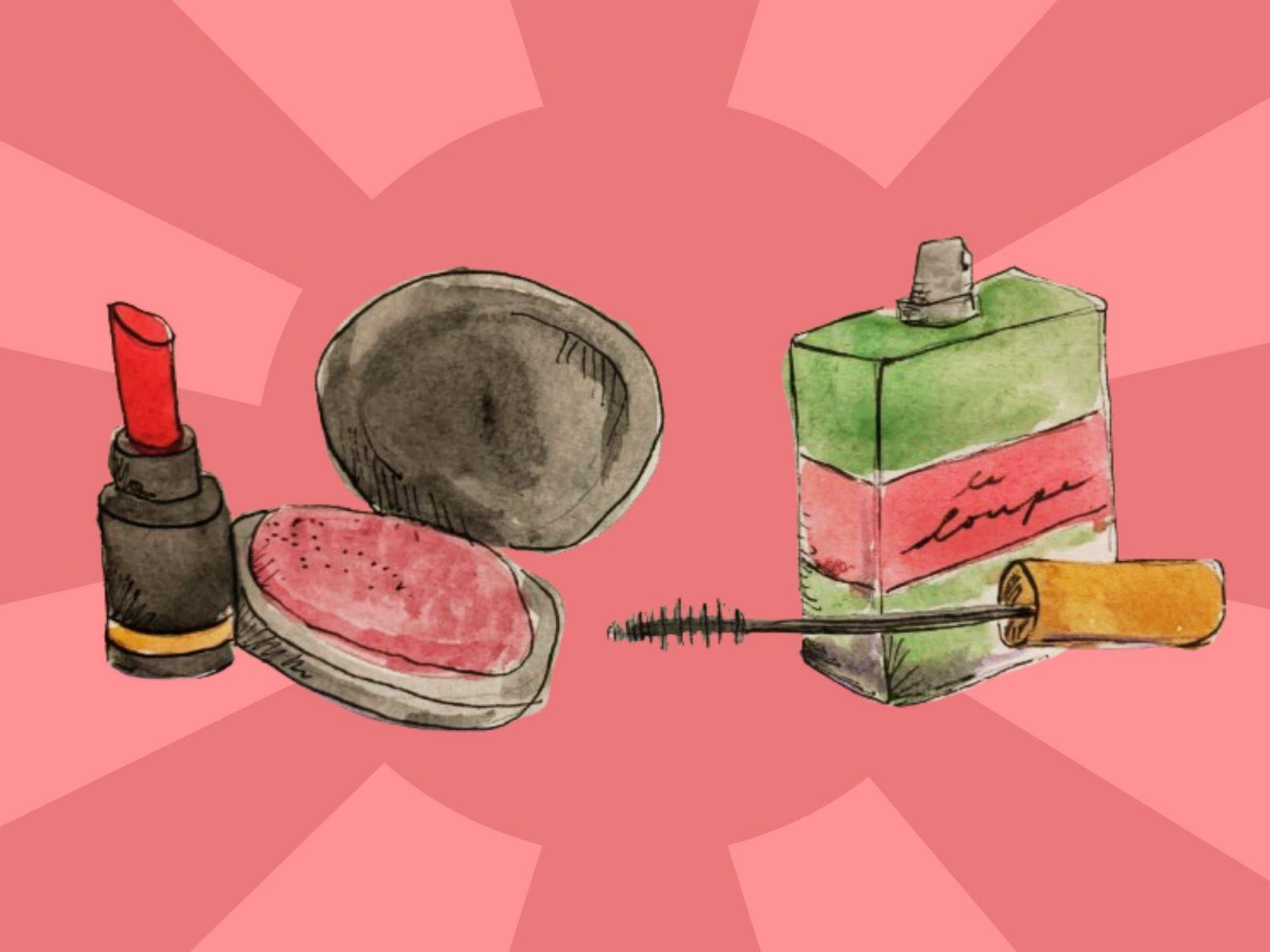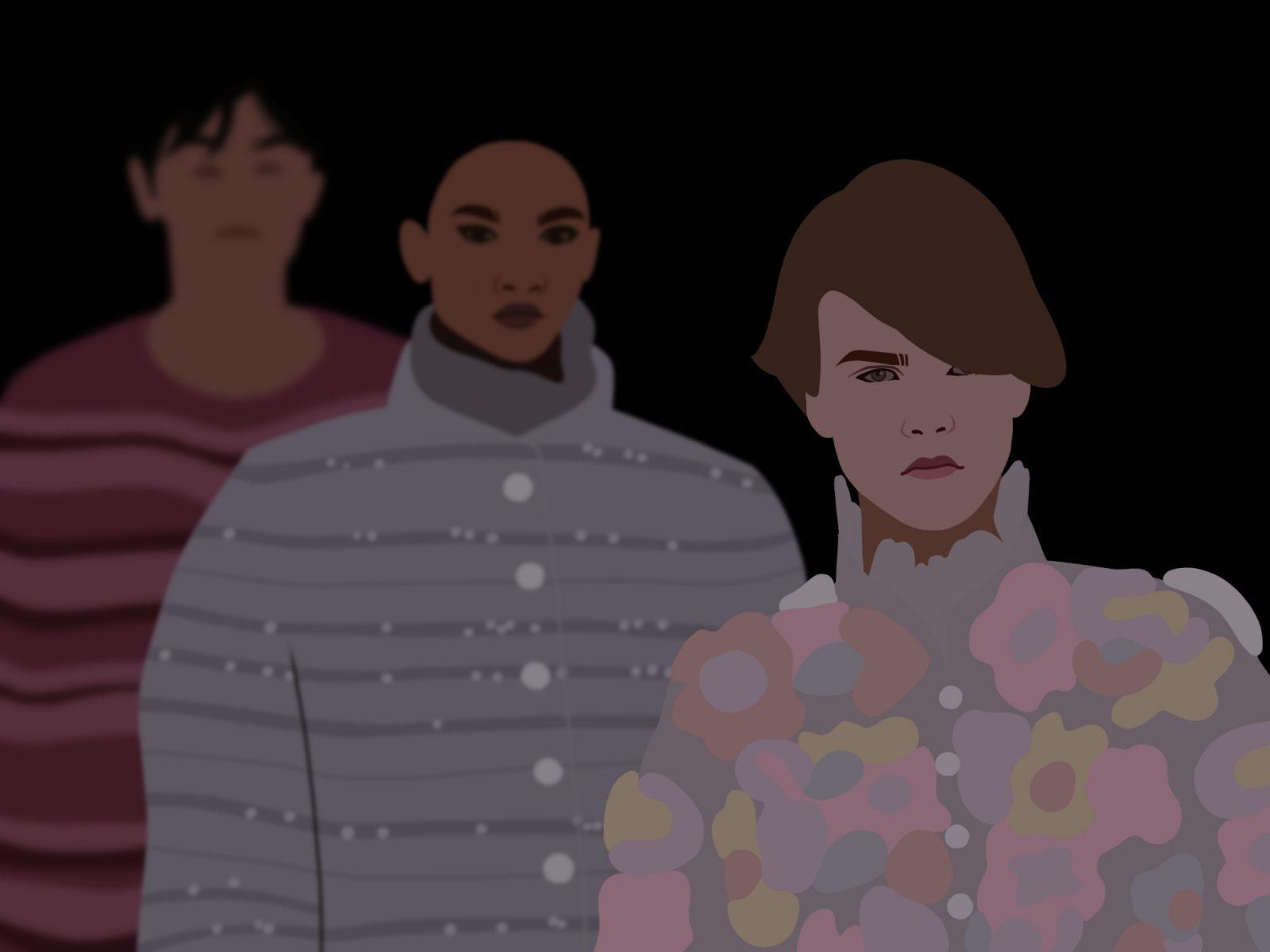If you were to ask me what’s in my bag or the pockets of my jeans, nine times out of 10, I will pull out a lip gloss. A year ago, I could not say the same. I can thank the plethora of makeup brands on the market for this change in my daily behavior.

Take for example, Hailey Bieber’s Rhode Lip Tint, the Dior Lip Glow Oil, Glossier’s Balm Dot Coms, NYX Fat Oil Lip Drip, Gisou Lip Oil, Summer Fridays’ Lip Butter Balm and my personal favorite, the KIKO Milano Lip Volume. The list is truly endless.
Engaged with the colorful packaging, the fun add-ons and the aesthetic that surround each brand, we are buying into an ever-growing industry — an industry that preys on the illusion of choice. The endless options that young shoppers have combined with the relatively accessible price tags makes for a lucrative corner of the market.
But it’s not just the name and the aesthetics that are alluring. The ingredients behind these products are making them bestsellers.
Bieber’s Rhodes Cosmetics dons the title of being certified cruelty-free and using clean, vegan ingredients. Glossier promotes similar values of vegan and cruelty-free goods, listing out the exact materials in their products. This level of transparency fosters a sense of trust with consumers and sends the message that these brands have nothing to hide.
More and more, consumers are taking time to learn about the ingredients in their makeup, spearheading an era of conscious consumerism — a lifestyle where shoppers feel as though their purchase has an impact and their money has power. Consumers now realize that they can use this power for good.
Environmental, social and governance, or ESG, encompasses this new lifestyle and can be cited to explain the rise in popularity for sustainable and organic goods.
Products with ESG-centric initiatives averaged 28% cumulative growth over the past five years, as opposed to other products that averaged 20% growth, according to a 2023 study from McKinsey. Corporations realize how imperative it is to come forth with their own initiatives and how it is no longer an added bonus but rather a necessity to stay afloat in this market.
Measuring and reporting on a company’s social impact is the most pressing sustainability issue in the industry today, along with the traceability of such information. These brands can have a positive impact, but it is how they convey this impact to consumers that matters.
So yes, lip glosses are gaining popularity given their presence in the forefront of sustainable makeup, but this trend is also representative of much more—namely, the powerful culture of celebrity brands. Many of these brands collaborate with a lip gloss manufacturer to create custom formulas that align with their image, ensuring high-quality, trendy, and often eco-friendly products that resonate with consumers.
Kim Kardashian’s SKIMS is a prime example of this. With celebrities frequently using their status and translating it to a profitable empire, the market is becoming saturated with goods endorsed by our favorite celebrities. Rhode Cosmetics similarly rose to fame, launching in June 2022 and generating upwards of eight figures just 11 days post-launch.
Fenty Beauty by Rihanna is another celebrity-founded brand, winning awards from entrusted women’s magazines like “Glamour” and “Allure.” Rare Beauty by Selena Gomez has released their own tinted lip oil albeit dominating the blush market.
The ultimate question is: Did these celebrities and makeup brands find a spot in the beauty industry by creating products many can get behind? Or did they simply take advantage of their captive following and create guaranteed-to-sell products?
The popularity of the “clean girl aesthetic” boded well for these brands, as the aesthetic encouraged a no-makeup look, with just eyebrow gel and some lip product. As the tide changed and the “messy girl aesthetic” fought for some screen time, harsher colors and lip tints surfaced in the market.
With a finger on the pulse of the changing trends and aesthetics of our time, these brands are more than successful.
While we all love our lip gloss, the product itself stands for so much more. It represents a shift in the tide of our shopping habits, as well as our endorsement and idolization of celebrities and their byproducts.
Or maybe it just represents our desire for a little shine on our lips.























































































































